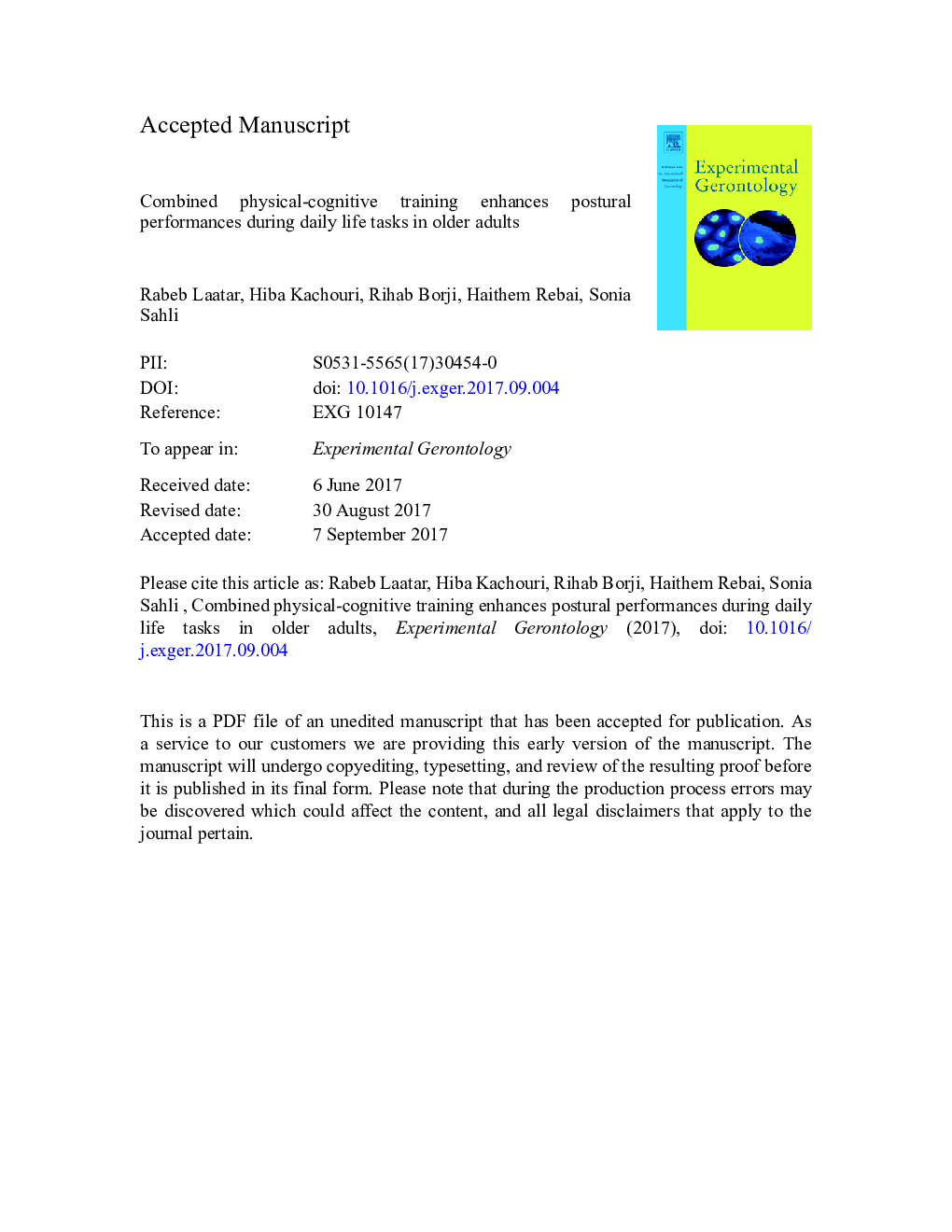| Article ID | Journal | Published Year | Pages | File Type |
|---|---|---|---|---|
| 8262261 | Experimental Gerontology | 2018 | 27 Pages |
Abstract
This randomized controlled trial examined postural (center of pressure oscillations), physical (lower body strength, gait speed, functional mobility, dynamic balance) and cognitive performances (reaction time) and postural performance during daily life tasks (walking while conversing on a phone and maintaining an upright standing posture while buttoning a shirt) in older adults (66.29 ± 3.61 years) pre- and post- 6-months physical and physical-cognitive interventions. Results showed that both training modalities improve balance (p < 0.001), physical functions (p < 0.01) and attention (p < 0.001) in older adults. Only simultaneous physical-cognitive training enhances performance in daily life tasks. Three months after the intervention, these improvements were generally maintained for physical functions and attention and were not maintained for the postural performances in daily life task. In conclusion, physical training improves postural balance, mobility, attention and physical functions in older adults. Only simultaneous physical-cognitive training modality enhances performance in some tasks relative to every day abilities. Nonetheless, these gains were lost after 3 months of detraining period suggesting a need for older people to participate regularly in such training for their daily life independence.
Related Topics
Life Sciences
Biochemistry, Genetics and Molecular Biology
Ageing
Authors
Rabeb Laatar, Hiba Kachouri, Rihab Borji, Haithem Rebai, Sonia Sahli,
